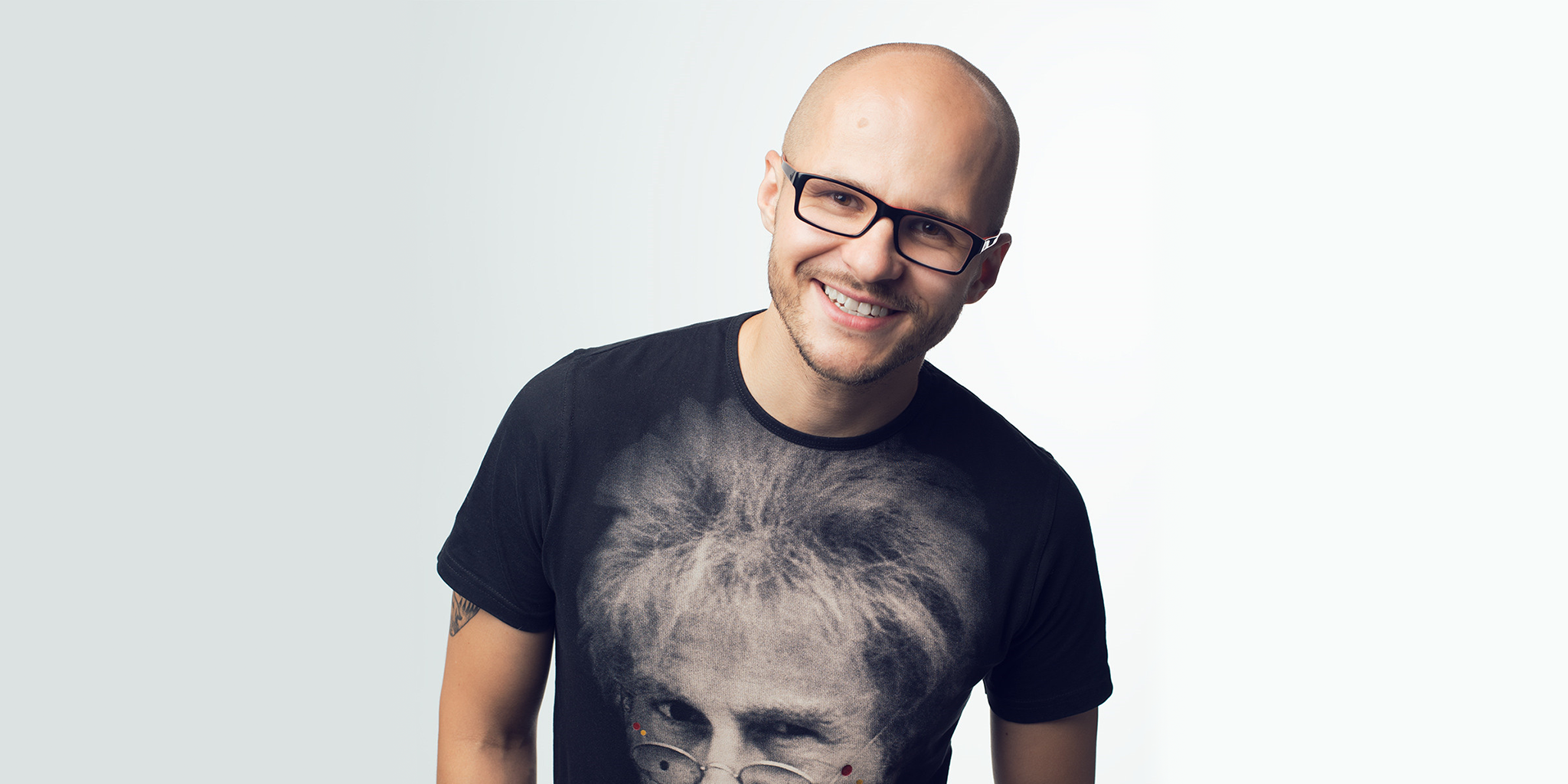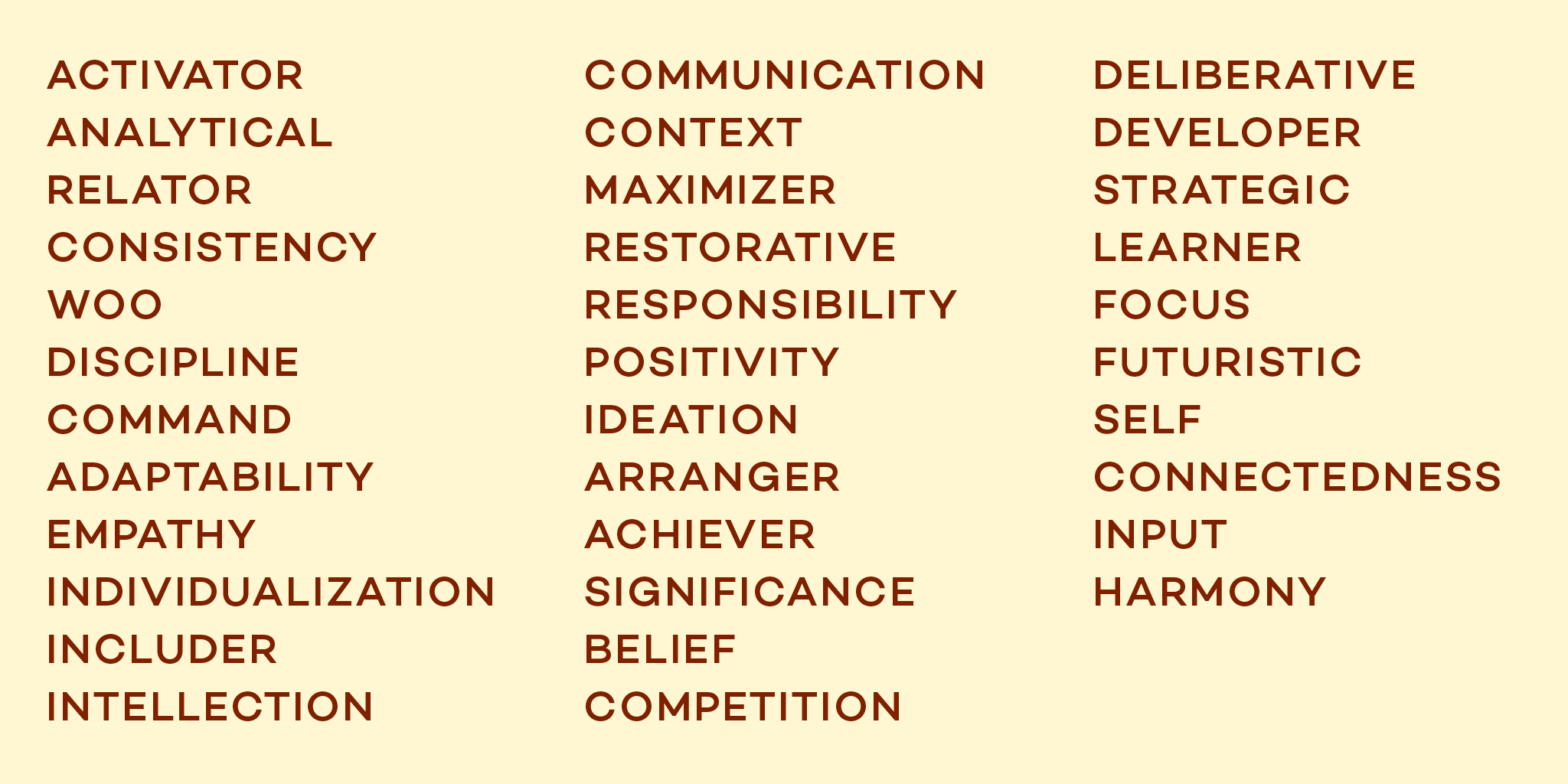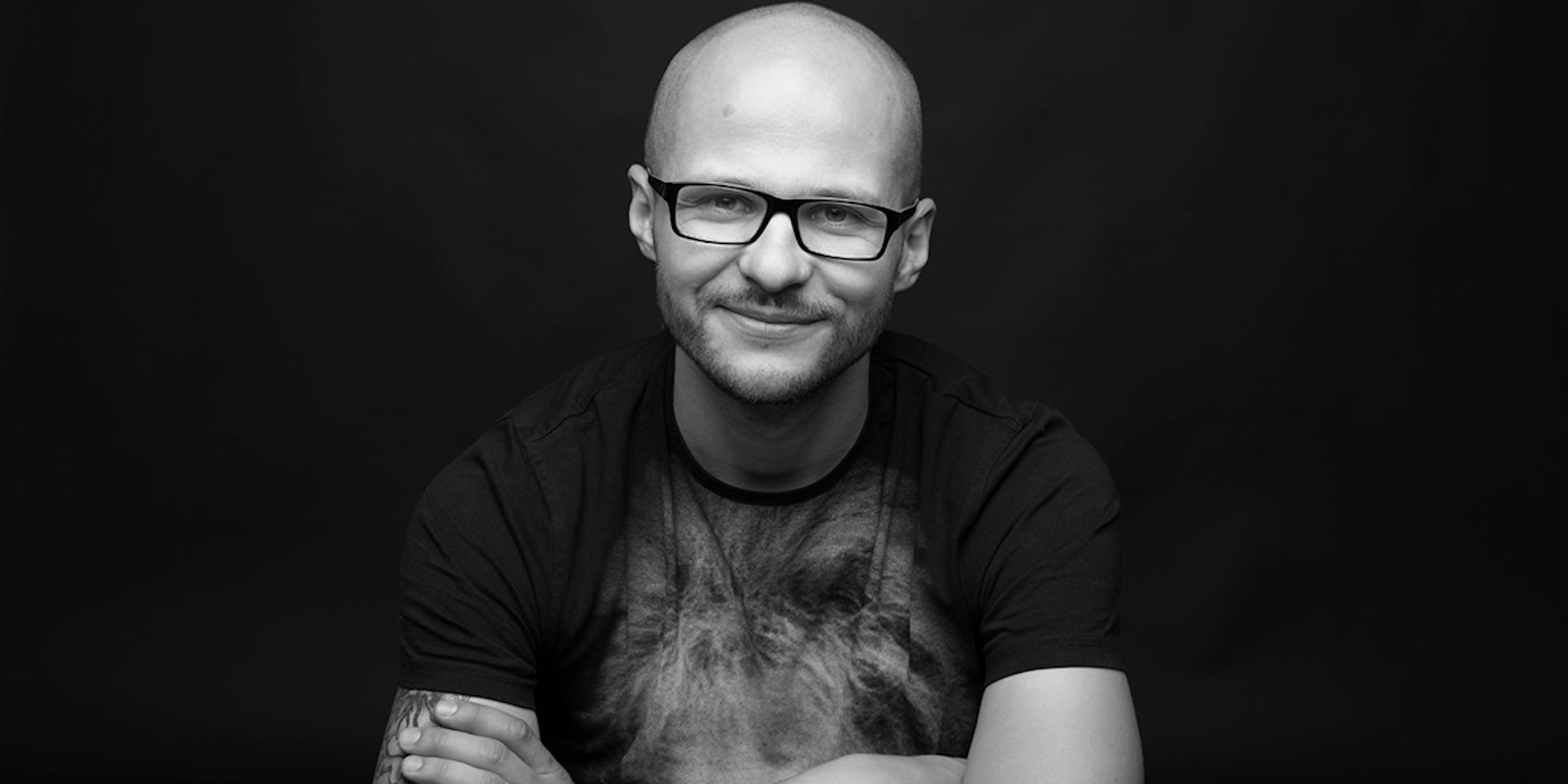
An interview with Dominik Juszczyk, Gallup-Certified Strengths coach, who helps teams increase their productivity and efficiency.
During our last Nozbe reunion you conducted a workshop for our team. It was all about our talents :-) The workshop was based on our results from the StrengthsFinder test created by the Gallup Strengths Center that we took beforehand. What are “talents” anyway?
Hearing the word “talent,” we usually think of someone who can sing, dance or do something different, unique. We think of them in terms of the popular “Got Talent” TV show. Working according to the talents and strengths-based development method, we use a different definition. A talent may be an ability to make quick decisions, adopt a cautious approach to a problem, analyze other people’s emotions, or talk to strangers. Each of these traits is a talent. The Gallup Organization’s official definition of a talent is an innate and recurring pattern of reaction, feeling and action.
A talent is therefore everything we do in an automatic and recurring way. Based on years of research, the Gallup Organization has categorized and described people’s talents. The list comprises 34 talents. When we talk about Gallup’s talents (popular name), we are talking about these 34 qualities.

But do we really need to take tests created by American psychologists who’ve never even met us personally and don’t know anything about our temperaments, experiences and current life situation in order to discover our talents?
Yes and no :-) If you want to use the resources prepared by the Gallup Organization, taking the test is definitely recommended. If you only need talent characteristics, without knowing the exact names of your own talents, taking the assessment isn’t necessary. This includes information about what helps us become successful, what we’re able to learn most easily and rapidly, and with what tasks we experience the so-called “flow.”
Of course, taking the test gives us much more accurate information. It was created on the basis of several decades of research and consists of 177 questions. Test-takers have only 20 seconds to answer each question to keep them from over-analyzing responses. The test result is a list of their top 5 signature talents (or in the second but more expensive version of the test: ranked ordering of all 34 talents).
According to studies, nearly 80% of respondents re-taking the test achieve the same or very similar results.
The test’s reliability rate is very high. I must admit that some people on our team were skeptical about it, even after reading their results from the StrengthsFinder report. They’ve come around after the amazing workshop that you prepared for us :-) Why do you do these workshops?
I’m glad to hear that :-) Curt Liesveld, one of Gallup’s most famous talent experts, used to say that in order to fall in love with your talents, you must first discover them. And loving your talents really helps, because without that, it’s difficult to develop them and use them in everyday life.
As for your team’s reaction – it’s actually quite common. To be able to use talents, it’s important to discover them. That’s why I conduct these workshops. I want to help people discover their talents (“Name It”), experience them (“Claim It”) and show them how to apply them in everyday life (“Aim It”).
Group workshops also provide the possibility to learn what others’ talents are. And this really facilitates cooperation. Knowing that our colleague is not a pessimist as we believed but a “Deliberative” allows us to understand his/her motivations. This talent gives him/her an innate ability to anticipate obstacles and develop ways of overcoming them. Knowing this, we can deliberately ask such people for help in various situations. And this is just one example out of 34, so there’s really a lot to learn about other people. This knowledge, put to practical use, enables people to improve communication, delegate, resolve conflicts and many other teamwork aspects.
At the workshop we learned that it’s not enough to discover your strengths and read their descriptions. Together we came up with the idea that to allow our talents to mature, we should spend a lot of time in the sun :-) Jokes aside, how can we really bring talents to maturity, i.e. effectively apply them in practice?
Unfortunately, a simple and universal method doesn’t exist. As we’ve said before, talents are an innate and recurring pattern of action, thought and reaction. When talents are raw, these patterns pose barriers. People talented in “Empathy” tend to have more compassion. “Analysts” on the other hand often deal with decision-making deadlocks because they need to carefully evaluate even the smallest decisions. A “Deliberative” won’t be associated with risk mitigation but pessimism. These are all risks arising from raw talents. Therefore, the first step to maturing talents is identifying raw talents. How? By reading the descriptions after taking the test and watching the “Theme Thursday” series on YouTube (each talent is discussed separately). It’s also a good idea to talk to people that know you. They can tell you when your talents are performing maturely and when they’re not.
And knowing which talents are raw…
…we can continue working on them. It certainly helps to build strengths from our talents by refining them with knowledge, skills and practice. It can also be helpful to work with a coach who’s familiar with this method. Working in a group of people who know and understand their talents is also a good idea.

What other examples of mature and raw talents can you give?
Besides those listed above, another interesting example of a talent is “Restorative.” People who have this talent are able to see things and areas that aren’t working and need to be restored to proper functioning. They know how to choose the appropriate remedy and action. When the talent is raw, they’re fixated on finding problems or may even provoke them. They aren’t able to let go of things even if they’re not worth fixing. They may also step in to solve things for other people – even when no one asked them to. A mature talent allows these people to select those areas that are worth restoring to their original state. A “mature Restorative” knows what to do, whom he/she should cooperate with, and is determined to fix what isn’t working.
Another example of a mature and raw talent is “Learner.” When this talent is in its raw form, a person seeks areas in which he or she can rapidly learn something and acquire new knowledge. In the beginning, this process is the fastest. Later, when the learning pace drops, they give up further learning and move ahead to something new to “feel the wind in the sails” again. A mature talent will allow them to consciously choose what, when, with whom and how they learn. They won’t be urged to jump from one subject to another.
That means we should look at our weaknesses – they may turn out to be raw talents! How does the StrengthsFinder test and its results correlate to personal productivity?
The StrengthsFinder test results help choose tools and methods to support productivity that are tailored to our needs. A person with the “Flexibility” talent (gifted with the ability, but also the need to frequently switch contexts) will work completely differently than someone talented in “Discipline” (the ability but also the need to create processes and structures). Knowing our talents we can choose the best approach to planning (time horizon/period), tools and way of working with them (planning a few years ahead vs. planning for the upcoming week). The level of translation of talents into behavior is very high. Therefore, it’s worth knowing how our talents affect our performance.
And how to use this “secret” knowledge for the benefit of the whole group/team?
Imagine you’ve joined a new team and you already have tips about how each person communicates, accepts tasks, how often you need to check his/her results or how to give them feedback, etc. Wouldn’t it be easier to start off? Meanwhile, it’s common that teams that have been working together for a long time don’t have that kind of knowledge about each other. Talents help us understand others’ behavior in the context of their values and needs. There’s someone on the team who asks a lot of questions? Maybe he or she is an “Analyst” who needs to understand the reasons and causes? There’s someone who immediately gets a project going but doesn’t analyze the consequences? Perhaps he/she’s an “Activator” who feels the urge to act. And so on. Talents allow us to understand each other and, in effect, improve our cooperation.
And the final question: how do you implement the “strengths” theory within a team?
It’s important that everyone on the team understands his or her own talents before going on to discuss them with others. It would be useful if someone from within or outside the team could explain this. When people discover their talents, it’s advisable to talk about values and needs resulting from these talents. This will help them understand each other better.
The next step is to search for compatible partnerships. Someone talented in “Communication” (i.e. the ability to convey complex topics in simple terms) may partner with an “Analytic” to ensure that the topic is understandable. A person with the “Futuristic” talent may seek help from a “Strategic” to find the best path to achieving a vision. On the other hand, a “Strategic” may seek support from someone talented in “Focus” to stay on the right track and not wander off the main target. It’s also a good idea to make talents visible in everyday life. Perhaps by displaying them in the email footer or next to your avatar? :-)
Implements best practices in life and daily work aimed at increasing his own and his team’s productivity. As a Gallup-Certified Strengths coach, he helps teams increase productivity and efficiency. He tries to make the most of every day and enjoys morning jogging. His top 5 strengths are: Individualization | Arranger | Learner | Empathy | Intellection



